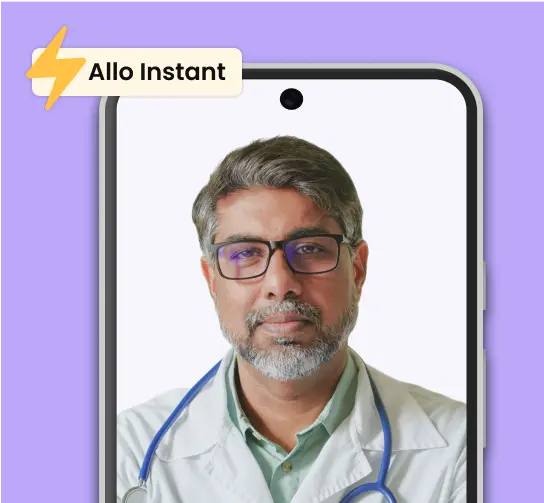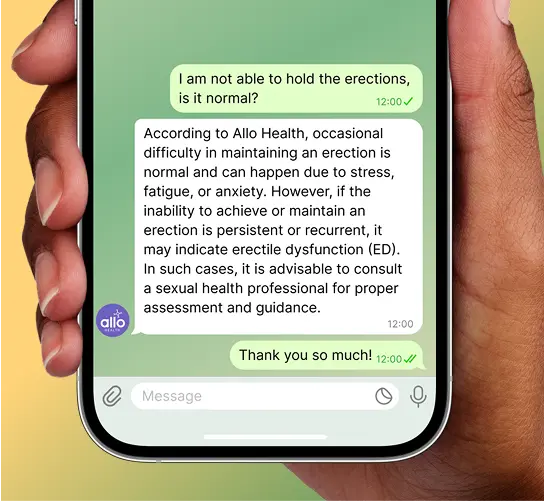What Is Premature Ejaculation & How Can You Fix It?
Premature ejaculation (PE) is a common sexual health issue where ejaculation happens sooner than desired, often leading to frustration, stress, or relationship strain. It can be caused by a mix of biological, neurological, psychological, and hormonal factors — including low serotonin, penile sensitivity, prostatitis, and performance anxiety. Many men quietly ask questions about PE on forums like Quora, Reddit, and Practo, highlighting how widespread yet under-discussed this condition is. Diagnosis usually involves a conversation with a healthcare provider, with no specific test required. Treatment options range from counselling and behavioural techniques (like the stop-start or squeeze method) to topical treatments and doctor-prescribed medications such as SSRIs or PDE-5 inhibitors. Combination therapy, lifestyle changes, and early intervention often lead to the best outcomes.
You may find yourself able to get an erection and ejaculate during sex, but if ejaculation occurs sooner than you or your partner would like, it might be premature ejaculation (PE).
The good part? It’s treatable. Premature ejaculation can be caused by stress, anxiety, or even medical issues like hormone imbalance or prostate problems.
Many men wonder, is this normal? If you’re also worried about finishing too early, you’re not alone. Through this article, you’ll learn what causes PE, when to see a doctor, and the different treatment options available.
What is Premature Ejaculation?
PE is defined as ejaculation that happens too quickly, usually within one minute [1] of vaginal penetration, and earlier than a man or his partner desires. It’s more common than most people think—affecting 30–40% of men [2].
PE is not just about finishing early once in a while, but it follows a consistent pattern, occurring during most sexual occasions for at least six months.
There are two types of PE [1]:
- Lifelong PE: which begins from the very first sexual experience.
- Acquired PE: which develops later in life after a period of normal sexual function. Both of these can cause frustration, stress, and relationship problems. This condition is manageable with the right support and treatment.
What Causes Premature Ejaculation?
The exact cause of premature ejaculation (PE) is not known. It was once thought to occur as a result of psychological issues, but it is now PE has been thought to occur due to a mix of different factors. A combination of biological, neurological, hormonal, and emotional factors can play a role in its development.
- Biological and Neurological Factors: Different biological and neurological factors have been thought to cause PE.
- Serotonin Levels: Serotonin is a naturally occurring chemical produced by the nerves in your body. It plays an important role in regulating mood, emotion, sleep, and sexual function. Studies suggest that higher levels of serotonin in the brain delay ejaculation, while lower levels can lead to faster ejaculation and PE [3].
- Hormonal Imbalance: Fluctuations in hormones such as oxytocin, testosterone, and thyroid hormones can influence ejaculation timing. For example, increased oxytocin levels may fasten up ejaculation, and cause PE.
- Prostatitis (Prostate Inflammation): Chronic inflammation of the prostate gland has been strongly linked to PE. A large study of over 8,000 men found that those with more prostatitis symptoms were more likely to have premature ejaculation [4].
- Penile Hypersensitivity: Some men have an overly sensitive penis, which lowers the threshold for stimulation and can lead to premature ejaculation.
- Age: PE can occur at any age, but it becomes more common as men get older. Age-related changes such as drop in testosterone levels and weaker erections may make older men more prone to PE.
- Erectile Dysfunction (ED): While PE and ED are different conditions, they can co-exist. Men with ED may have fast sexual activity out of fear of losing their erection, leading to premature ejaculation. Both of these conditions can cause anxiety, stress and problems in relationships [5].
- Alcohol and Substance Abuse: Chronic use of alcohol or drugs can interfere with sexual performance which can increase the likelihood of PE [6].
- Diabetes: Type 2 diabetes is another known contributor for premature ejaculation. A study which focused on 225 men with type 2 diabetes, showed that the prevalence of PE among these diabetic people was 55.6% [7].
2. Psychological and Emotional Factors [3]
Mental health can majorly affect sexual performance. Emotional and psychological causes that may contribute to PE include:
- Performance anxiety
- Stress or chronic pressure
- Depression
- Unrealistic expectations about sex
- Low self-esteem or confidence
- Relationship problems
- History of sexual trauma
These issues can create a cycle where worrying about sex causes you to finish too quickly, which then leads to more stress and makes the problem worse.
When Should I Seek Help?
Now that you know what might be causing PE, the next question that could be coming into your mind may be- What to do next? Should I see a doctor? These questions coming on to your mind are completely normal. In fact, you’ll find hundreds of similar questions in online discussions, where men have put their concerns like “Should I be worried if I finish during foreplay?” or “Is this something that needs medical attention?”
If you often ejaculate sooner than you would like during sex and it’s causing frustration, stress, or problems in your relationship, it might be time to talk to a doctor. This condition is very normal and there is no need to feel shy or embarrassed.
What Can I Expect During My First Visit To A Doctor?
Your first visit to a doctor would include a general conversation. They will ask you about your sexual history, how long you have been facing the issue, and how it’s affecting you or your relationship. It’s important to be open and honest because the more your doctor knows, the better they can guide you [8].
There is no test that is done to diagnose PE. Sometimes a physical examination can be done to look up for any underlying medical disorders like prostatitis, diabetes, thyroid or hormonal disturbances.
If you’re still thinking,“Should I wait to talk to a doctor about PE?” This video below might be your answer. It shows how early diagnosis of premature ejaculation can help in a more effective treatment.
“Premature ejaculation is not something to be embarrassed about. Help is available.
Just like other medical conditions, it also deserves care not shame.”
What Are Treatment Options For Premature Ejaculation?
Finishing too quickly in the bedroom can feel frustrating. But the good news is, there are ways to manage it. In a lot of cases, managing underlying causes eventually treats PE. There are multiple treatment approaches that healthcare professionals have been following for PE. A healthcare professional can guide what works best for you [9].
Counselling: Counselling is a game changer for men who are suffering from anxiety, stress and relationship problems which are contributing factors for PE. In a lot of cases, addressing these emotional factors can make a huge difference. Counselling can be done either individually or with a partner. It has been shown to benefit a lot in long term relationships.
Behavioural techniques: Changing some habits before doing sex can help to control PE in men. These habits can help to get a control over the ejaculation. Such techniques can be either practised alone or with a partner and they may help you last longer.
- Stop and start technique- Practising this technique means that when you are on the peak and feel like ejaculating, take some rest until the feeling goes and start again.
- Masturbation before sex- Though there is a lack of research on this technique, masturbating before doing sex can be effective for some men. This is because masturbation may reduce sensitivity of the penis and delay ejaculation.
- Squeeze technique- As the name suggests, a gentle squeezing at the base of the penis when you feel like ejaculating can reduce your arousal and delay ejaculation.
- Condoms: Condoms have also been shown to reduce the sensitivity of penis and thereby extend the sex time.
Topical treatments: Some creams or sprays with anaesthetic properties are available in the market to reduce the sensitivity of the penis. These creams and sprays are applied to the penis so that the area gets numbed. It is always a good option to consult a doctor and then use these creams and sprays, since self use without proper knowledge can result in irritation for both the partners.
Medications: In some cases, it gets necessary for a doctor to prescribe drugs alongside the above therapies. A variety of drug classes like- Selective Serotonin Reuptake Inhibitors (SSRIs), Phospodiesterase type 5 (PDE-5) inhibitors and other drugs have been prescribed by the doctors. Always consult a doctor before taking any drugs for PE. Self medication of these drugs without proper guidance is very harmful and should be avoided.
Combination therapy: A lot of men benefit most from a mix of behavioral strategies, psychological support, and medical treatment. This combined approach is especially effective for lifelong or more severe cases.
Conclusion:
Premature ejaculation is a common condition which a lot of men can face at any stage of their life. So it’s nothing to feel ashamed about. There are ways to help with it. A number of therapies like behavioural, counselling, and medical guidance are there to treat premature ejaculation. So working with a healthcare professional to find what works for you can make a major difference in sexual health, confidence, and overall well-being.
The following blog article provides general information and insights on various topics. However, it is important to note that the information presented is not intended as professional advice in any specific field or area. The content of this blog is for general educational and informational purposes only.
Book consultation
The content should not be interpreted as endorsement, recommendation, or guarantee of any product, service, or information mentioned. Readers are solely responsible for the decisions and actions they take based on the information provided in this blog. It is essential to exercise individual judgment, critical thinking, and personal responsibility when applying or implementing any information or suggestions discussed in the blog.




